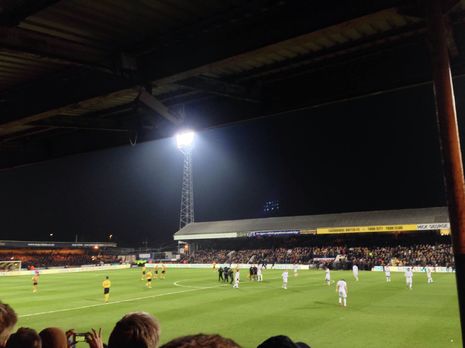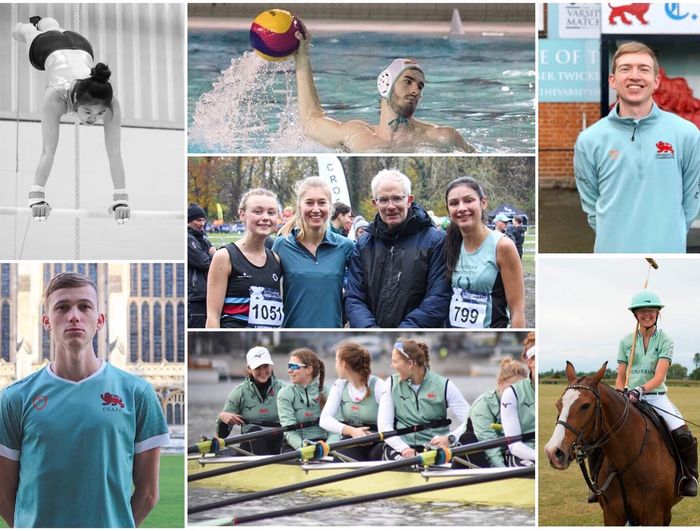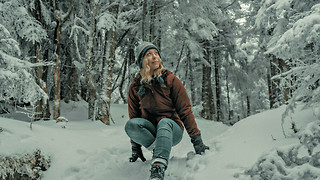Cambridge United’s inspiring community work continues during the pandemic
George Watson reports on the ongoing and hugely impressive work of Cambridge United to support and help the community during these difficult times.

Football goes on. The 1985 European Cup Final went ahead although 39 people had suffered fatal injuries in the stadium before kick-off, and four years later Liverpool and Everton played a poignant FA Cup Final just five weeks after the first attempt to play Liverpool’s semi-final was abandoned at Hillsborough because of the worst disaster in British sporting history. Even after crises and events which have changed society drastically in the UK, and everywhere, football has continued.
The last time an English football season was suspended was 1939. It may not always be at 3 o’clock on a Saturday afternoon any more, but it can still be relied upon to provide a welcome distraction from the rest of our lives. Except now. So, at the level where kick-off is still always 3 o’clock on a Saturday and clubs play a genuine part in uniting the community, what happens now?
In normal times, Cambridge United’s community presence is strong, led by the club’s charitable arm, Cambridge United Community Trust. “Cambridge United is the epitome of a good community-based club,” says The Duke of Cambridge. The community it represents is large for a League Two club despite the general preference for rugby union within the city, since support comes from other places in South Cambridgeshire and biggest rivals Peterborough United are 35 miles away.
The trust’s Mind Your Head project, which engaged secondary school students with mental health awareness, was awarded Community Project of the Year for League Two in March.
The U’s are proud to endeavour to be a “mentally healthy club” and last year hosted a BBC programme about mental health in football. The trust’s Mind Your Head project, which aimed to engage secondary school students with mental health awareness, was awarded Community Project of the Year for League Two in March. Usually, the trust operates with the three key themes of education, health and inclusion, but during the pandemic its regular sessions have stopped and it has begun the Here For U’s campaign, offering three kinds of help: emotional, practical and physical.
The trust is working with charity Cambridge Food Poverty Alliance and Bengali restaurant Pipasha, situated opposite the stadium on Newmarket Road, to deliver hundreds of meals donated to vulnerable families in Cambridge, especially in the Abbey ward. It is also posting bitesize educational videos on the internet and producing education packs for children at home. On the physical side, Family Fitness Fun sessions are streamed on the trust’s Facebook page every weekday morning, and the trust has been participating in The 2.6 Challenge, which is encouraging charity through sponsorship of various exercises involving the number 2.6.
However, head coach Mark Bonner notes, “I am acutely aware of the number of people who are feeling lonely and isolated. This is perhaps the biggest role the Here For U’s campaign can play now,” so it is the emotional side of the campaign where the club and the trust are making their most remarkable efforts. The trust’s community careline is open every weekday and the club aren’t shy to invite those with a human craving for attention to call them. As well as inviting supporters to contact them, the trust has provided a podcast to entertain those in isolation and update everyone interested in the efforts of both the club and the trust, and the club has reached out directly to all season ticket holders aged 64 or older by telephone.
Very sadly, two season ticket holders, Keith Hood and Ian Kirk, have passed away during lockdown. Despite the obvious difficulty in paying respects in current circumstances, the volume of online wishes is heartening. In general, it is not just through official channels that supporters are connecting. Online museum 100 Years of Coconuts have set up their own quiz nights, and a glance through the comments on any social media page associated with the club’s fanbase illustrates how much mutual gratitude there is in the United community. One postman has been doing his job dressed in silly costumes to maintain morale in the area near the ground, and Imogen Papworth-Heidel, a 10-year-old member of a United development squad, has raised over £4500 for key worker charities with her campaign to do 7.1 million keepie uppies - one for each key worker. No one can do that many alone, so she has appealed for donations of keepie uppies as well as money! U’s centre back Harry Darling has donated some, and has also played a match of FIFA against the winner of an online tournament set up by the community trust during the pandemic.
The club has keenly expressed its gratitude to the NHS. Groundsman Ian Darler adorned the unused Abbey field with a giant heart shape, containing a rainbow and the letters NHS. Workers for the health service will have the right to attend a designated fixture at The Abbey for free when football returns.
Cambridge owner Paul Barry: “I am confident that, whatever the future holds, we have the unity, culture and leadership...that give us the best chance possible of getting through this and coming out the other side in the best shape we can.”
Money is a problem. Five United home matches have been missed because of lockdown and the club has furloughed staff, including players. 2020-21 season tickets went on sale early, for a brief period, in order to gain funds, and the shirt worn during the club’s peak and near promotion to the inaugural Premier League in 1992 has been reproduced and sold again, no doubt for the same reason. Throughout the lower divisions, there is fear of a financial disaster.
Aside from the basic hope which is common to all the footballing world, there is little reason to believe that Bury will be the only English town to lose its professional football club this season. Cambridge owner Paul Barry assures supporters “I remain completely committed to Cambridge United.” He says: “I am confident that, whatever the future holds, we have the unity, culture and leadership across the Club - from the Board right the way through to our brilliant fans - that give us the best chance possible of getting through this and coming out the other side in the best shape we can.”
It is this unity and culture which made my year of involvement with audio description at United so enjoyable. I am a finalist now, and I wish I’d been to The Abbey sooner. I hope that any reader who will be in the city when attended football resumes will have the opportunity to go and experience it for themselves.
 Comment / College rivalry should not become college snobbery30 January 2026
Comment / College rivalry should not become college snobbery30 January 2026 News / Downing Bar dodges college takeover31 January 2026
News / Downing Bar dodges college takeover31 January 2026 News / Cambridge for Palestine hosts sit-in at Sidgwick demanding divestment31 January 2026
News / Cambridge for Palestine hosts sit-in at Sidgwick demanding divestment31 January 2026 Science / Meet the Cambridge physicist who advocates for the humanities30 January 2026
Science / Meet the Cambridge physicist who advocates for the humanities30 January 2026 Features / Are you more yourself at Cambridge or away from it? 27 January 2026
Features / Are you more yourself at Cambridge or away from it? 27 January 2026










